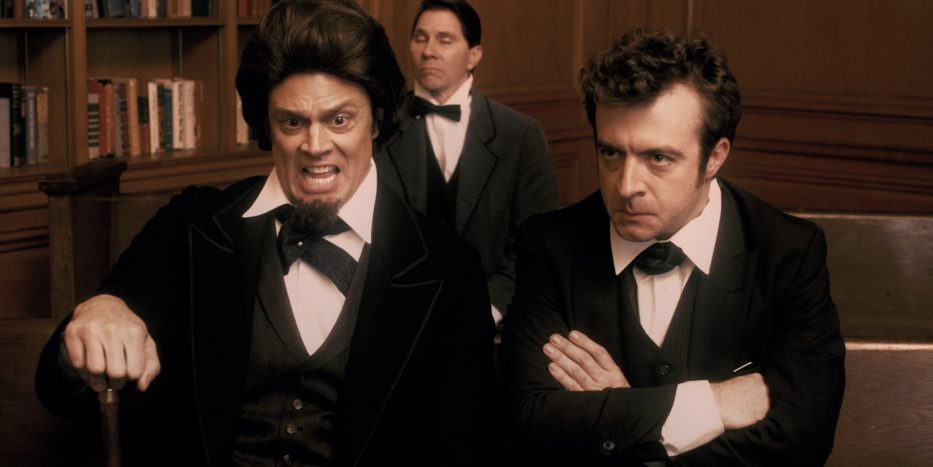This week’s episode of “Drunk History” tells us three stories of the most historical significance from Charleston, South Carolina. Tonight we were taught about the caning of Charles Sumner, Judge Waties Waring’s fight against segregation and the story of how Robert Smalls went from being a slave to being one of the most important political figures in South Carolina’s history.
Charles Sumner – portrayed by Patton Oswalt – was a Senator who was attacked by Representative Preston Brooks – portrayed by Johnny Knoxville – after he felt Sumner not only slandered Brooks’ cousin, but also the state he was from. Sumner opposed slavery and gave a speech stating he felt Kansas should be declared a free state, meaning slavery would be outlawed. Of course this didn’t sit well with most political figures from the south, so Brooks hit Sumner 30 times with a cane.
Although he was injured badly, Sumner would return to Congress years later to reiterate his views that slavery should be stopped. At this time in history many people had come to agree with Sumner, and his speech is considered one of the most influential in the fight against slavery.
Our next history lesson is about Judge Waties Waring and how he greatly influenced the Supreme Court in Brown v. The Board of Education. Although Judge Waring originally was an advocate for segregation, his second wife who was from Michigan eventually was able to convince him that race should not matter when it comes to determining the value of a person’s character. Once Judge Waring realized that regardless of race all people should be treated fairly, he became an advocate for racial equality.
Despite having a brick thrown through his window and having the Ku Klux Klan burn a cross in front of his house, Judge Waring never backed down from his stance on equality. When the U.S. Supreme Court made it’s historical ruling in Brown v. The Board of Education, they based their decision off a dissent written by Judge Waring. That ruling would force integration in all schools across the United States forever.
The final story of the night is about Robert Smalls, who was born a slave but eventually became one of the most important political figures in South Carolina. When he was a child, his father – who also happened to be his slave owner – sent Smalls on board of a ship for many years so he could learn valuable lessons, plus stay out of trouble.
Eventually Smalls plotted to steal the ship he was on and rescued not only his family, but the family of all the crew members on board. Once he made his way past five Confederate forts, he turned his ship over to the Union and President Abraham Lincoln. At this point, not only did Smalls enlist to serve in the army, but he also helped recruit 5,000 black soliders to also serve. Many years later, Smalls served multiple terms in Congress as both a member in the South Carolina House of Representatives, as well as the South Carolina State Senate.
Next week’s episode will feature three stories about Hollywood, California. Known for being the home for celebrities for nearly a century, there’s a good chance that next week’s episode could be the best one so far. As always, you can watch “Drunk History” every Tuesday at 10:00 p.m. EST on Comedy Central.




